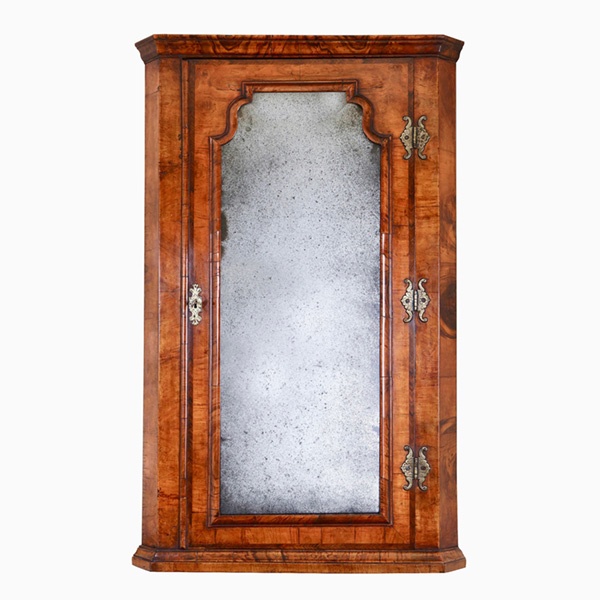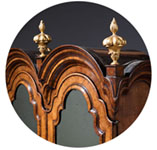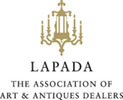17th Century William and Mary Olive Oyster Marquetry Escritoire, Circa 1680
Sold
Follow Us
17th Century William and Mary Olive Oyster Marquetry Escritoire, Circa 1680
A remarkable and extremly rare William and Mary olive oyster and floral marquetry escritoire, concealing eight secret drawers, circa 1680. England.
Attributed to Thomas Pistor.
The cross-grain cavetto cornice sits over a cushion-moulded hidden drawer decorated with three panels of floral marquetry on a ground of ebony. The banded fall is centred by a large oval of olive oyster bookmatched veneers lined in box stringing and is beautifully decorated nearly entirely in floral marquetry on an ebony ground depicting spring flowers, birds with metal eyes, a butterfly, a tarza, and most unusually for English marquetry, a bumblebee. The fall opens on the original lock, hinges and straps to reveal a silk writing surface and an extensive arrangement of pigeon holes above holly banded oak lined olive oyster bookmatched drawers around a central cupboard, similarly veneered with the addition of box stringing.
Every other division between the pigeon holes can be pulled out to reveal a secret drawer. Once the central cupboard is open, you can remove a well-made cross-grain moulded box to reveal a further three drawers.The cross-grain waist moulded chest consists of two short and two long oak-lined graduating drawers, each banded, veneered in oysters of olive and inset with break arch marquetry panels on an ebony ground. Raised on bun feet.
Similarly, the holly banded sides are veneered in large bookmatched olive oysters.
It should be noted that the piece is in fine condition and retains extremely good colour and patination.
The Maker
There were in fact, two cabinet-makers called Thomas Pistor, father and son, working for a period at the same time but at different premises. One or both are known to have made furniture of quality for Levens Hall, which include a floral marquetry table.
From the 4-18 August 1950 Country Life ran a series of articles featuring what was then the recently rebuilt Buxted Park, a house reconstructed by the architect Basil Lonides following a serious fire and in one of the illustrations a kingwood escritoire is visible. Subsequently, Christopher Gilbert commented in ‘The Dictionary of Marked London Furniture’, Leeds, 1996, p.44 that a “highly important kingwood fall-front cabinet inscribed ‘Thomas Pistor, Ludgate Hill, London’, formerly owned by the Hon. Basil Ionides, unfortunately, remains untraced. It was amongst the Buxted Park furniture at Sotheby’s, 25 September 1963, lot 168 (withdrawn)…”. The whereabouts of this escritoire remain unknown and further details of how the pieces are marked remain uncertain.
The overall profile and proportions of the Buxted escritoire conform to that of this escritoire.
Condition
Good. Wear consistent with age and use. Minor structural damages. Excellent condition and colour. The interior handles and escutcheons appear to be original. Later exterior handles.
Dimensions
Height: 156.5 cm (61.62 in)
Width: 108 cm (42.52 in)
Depth: 47 cm (18.51 in)
PREVIOUSLY SOLD
No Results Found
The page you requested could not be found. Try refining your search, or use the navigation above to locate the post.
No Results Found
The page you requested could not be found. Try refining your search, or use the navigation above to locate the post.
YOU MAY ALSO LIKE

Queen Anne Walnut Corner Cupboard with Bevelled Mirror Plate
A truly remarkable find in original condition. To the door a shaped soft bevelled mirror plate is framed by a cross-grain molding of typical queen Anne design which is further cross-banded, feather-banded and edged to the opening with a single de-molding.

Queen Anne Walnut Corner Cupboard with Bevelled Mirror Plate
A truly remarkable find in original condition. To the door a shaped soft bevelled mirror plate is framed by a cross-grain molding of typical queen Anne design which is further cross-banded, feather-banded and edged to the opening with a single de-molding.





















